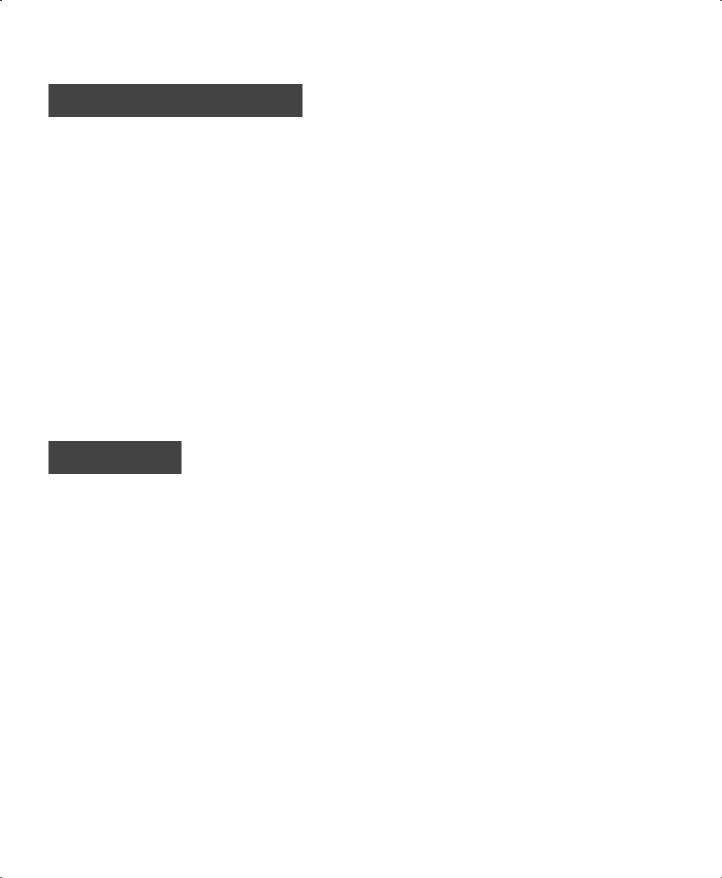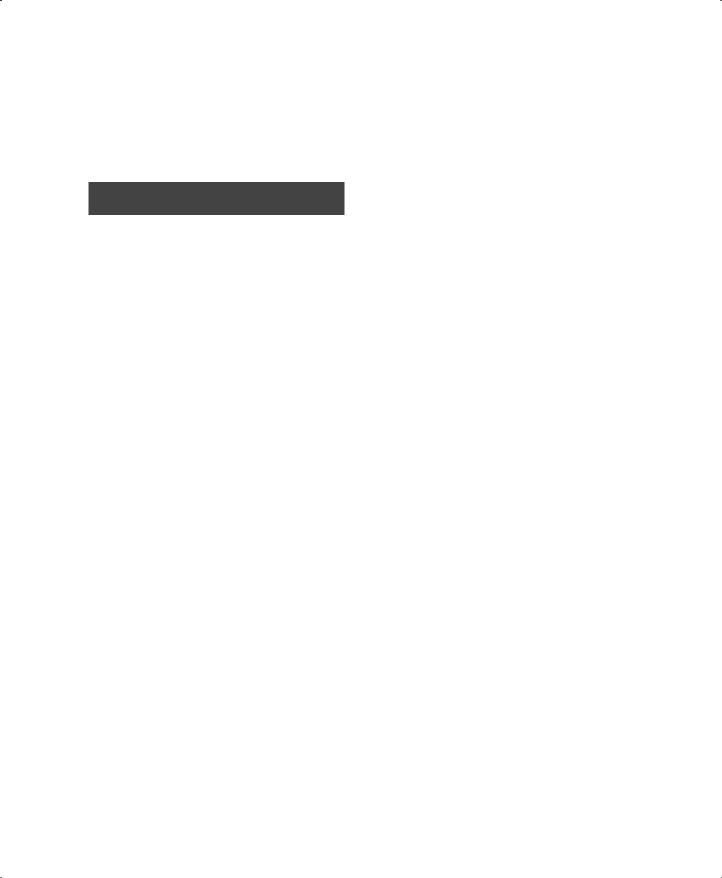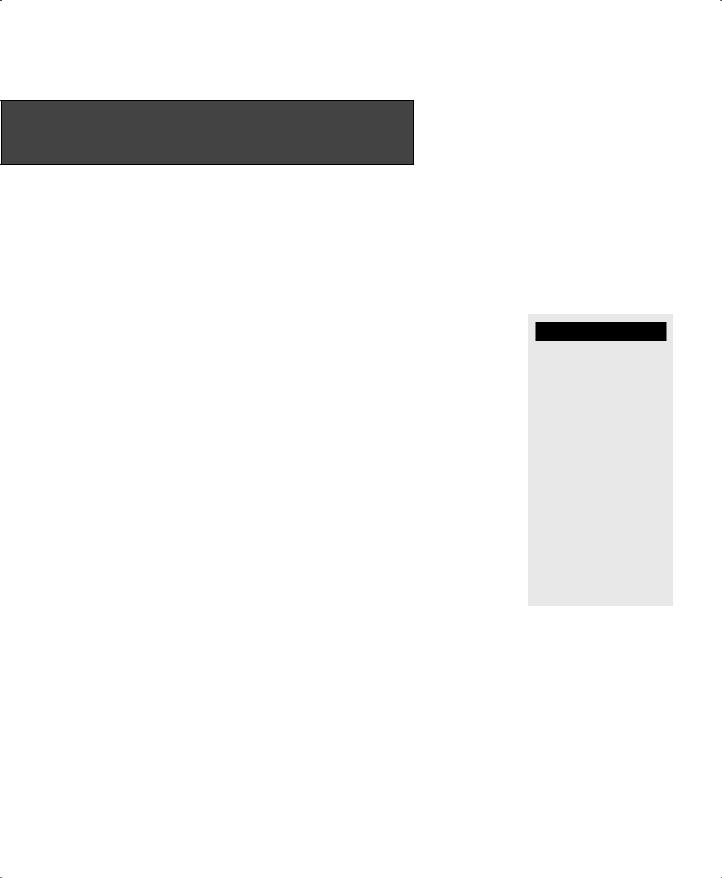
- •Contents
- •Preface
- •Acknowledgments
- •Founders of the Hotel Industry
- •E. M. Statler
- •Conrad Hilton
- •Cesar Ritz
- •William Waldorf Astor and John Jacob Astor IV
- •Kemmons Wilson
- •Ernest Henderson and Robert Moore
- •Ray Schultz
- •Historical Developments
- •Atrium Concept
- •Select-Service Hotels
- •Technological Advances
- •Marketing Emphasis
- •Total Quality Management
- •Major Reorganization, 1987–1988
- •Hotel Investment
- •September 11, 2001
- •Economic Downturn of the Late 2000s
- •Overview of the Hotel Industry
- •Types of Lodging Facilities
- •Hotels
- •Motels
- •All-suites
- •Select-service Hotels
- •Extended-stay Hotels
- •Market Orientation
- •Sales Indicators
- •Occupancy
- •Average Daily Rate (Average Room Rate)
- •Yield Percentage
- •RevPAR (Revenue per Available Room)
- •Levels of Service
- •Business Affiliations
- •Chain Affiliation
- •Referral Property
- •Company-owned Property
- •Management Contract Property
- •Brands
- •Independent Properties
- •Trends That Foster Growth
- •Leisure Time
- •The Me/Pleasure Concept
- •Discretionary Income
- •Family Size/Household Size
- •Business Travel
- •Female Business Travel
- •Travel as Experience
- •Career Development
- •Educational Preparation
- •Work Experience
- •Professional Memberships
- •Ports of Entry
- •Researching Growth Areas in the Hospitality Industry
- •Solution to Opening Dilemma
- •Chapter Recap
- •End-of-Chapter Questions
- •Notes
- •Key Words
- •Organization of Lodging Properties
- •Organization Charts
- •Typical Job Responsibilities of Department Managers
- •General Manager
- •Assistant General Manager
- •Food and Beverage Director
- •Physical Plant Engineer
- •Executive Housekeeper
- •Human Resources Manager
- •Marketing and Sales Director
- •Front Office Manager
- •Controller
- •Director of Security
- •Parking Garage Manager
- •Organization of the Front Office Department
- •Typical Front Office Organization
- •Select-service Hotel Front Office Organization
- •Function of the Front Office Manager
- •Job Analysis and Job Description
- •The Art of Supervising
- •Staffing the Front Office
- •Solution to Opening Dilemma
- •Chapter Recap
- •End-of-Chapter Questions
- •Key Words
- •Role of the Front Office in Interdepartmental Communications
- •Front Office Interaction with Other Departments in the Hotel
- •Marketing and Sales Department
- •Housekeeping Department
- •Food and Beverage Department
- •Banquet Department
- •Controller
- •Maintenance or Engineering Department
- •Security Department
- •Human Resources Management Department
- •Analyzing the Lines of Communications
- •Situation 1: Marketing and Sales Knows It All—But Didn’t Tell Us
- •Situation 2: Peace and Harmony in 507
- •Situation 3: I Know What You Said, and I Think I Know What You Mean
- •The Role of Total Quality Management in Effective Communication
- •An Example of Total Quality Management in a Hotel
- •Solution to Opening Dilemma
- •Chapter Recap
- •End-of-Chapter Questions
- •Key Words
- •Physical Structure and Positioning of the Front Desk
- •Guest First Impression
- •Creating a Balance Between Guest Flow and Employee Work
- •Selecting a Property Management System
- •Importance of a Needs Analysis
- •Procedure for Performing a Needs Analysis
- •Selecting a Team
- •Analyzing the Flow of Guests through the Hotel
- •Communicating Information
- •Reviewing Administrative Paperwork
- •Management Review of Information
- •Evaluate Needs That Have Been Identified
- •Assessing Needs Based on Findings
- •Choosing Software
- •Choosing Hardware
- •Other PMS Selection Considerations
- •Vendor Claims
- •Hardware Installation Plans
- •Computer Training Programs
- •Backup Power Sources
- •Maintenance Agreement
- •Financial Considerations
- •PMS Applications
- •Reservations
- •Revenue Management
- •Registration
- •Room Status
- •Posting
- •Call Accounting
- •Checkout
- •Night Audit
- •Inquiries/Reports
- •Back Office
- •Housekeeping
- •Food and Beverage
- •Maintenance
- •Security
- •Marketing and Sales
- •Personnel
- •Electronic Mail
- •Time Clock
- •Solution to Opening Dilemma
- •Chapter Recap
- •End-of-Chapter Questions
- •Notes
- •Key Words
- •Importance of a Reservation System
- •Overview of the Reservation System
- •Choice Hotels International
- •Hilton Hotels
- •Marriott International
- •Global Distribution Systems (GDS) in Securing Reservations
- •Role of the Internet in Securing Reservations
- •Background on Room Rates Offered via the Internet
- •Effect of Internet on Pricing Rooms
- •Consumers Response to Use of the Internet—Third-Party Websites
- •Social Media
- •Financial Effects of Third-Party Reservations
- •Types of Reservation Systems
- •Franchisee
- •Referral Member
- •Sources of Reservations
- •Corporate Clients
- •Social/Military/Educational/Religious/Fraternal (SMERF)
- •Meetings/Incentive/Conference/Event (MICE)
- •Group Travelers
- •Leisure Travelers
- •Current Guests
- •Forecasting Reservations
- •Overbooking (Occupancy Management)
- •Revenue Management
- •Processing Guest Reservations
- •Systemwide Reservation Systems
- •Outsourcing Reservations
- •Types of Reservations
- •Reservation Codes
- •Cancellation Codes
- •Blocking Procedure
- •Process of Completing Reservations through a PMS
- •Database Interfaces
- •True Integration
- •Solution to Opening Dilemma
- •Chapter Recap
- •End-of-Chapter Questions
- •Notes
- •Key Words
- •Occupancy Percentage
- •Average Daily Rate
- •RevPAR
- •History of Yield Management
- •Use of Yield Management
- •Revenue Manager
- •Components of Revenue Management
- •Definition of Yield
- •Optimal Occupancy and Optimal Rate
- •Strategies
- •Forecasting
- •Star Report
- •Block-out Periods
- •Systems and Procedures
- •Channel Management
- •Feedback
- •Management Challenges in Using Revenue Management
- •Considerations for Food and Beverage Sales
- •Applications of Revenue Management
- •Scenario 1
- •Scenario 2
- •Scenario 3
- •Solution to Opening Dilemma
- •Chapter Recap
- •End-of-Chapter Questions
- •Notes
- •Key Words
- •Importance of the First Guest Contact
- •Components of the Registration Process
- •Capturing Guest Data
- •Guest Registration Procedure
- •Guest Hospitality
- •Inquiry about Reservation
- •Completion of Registration Card
- •Review Completeness of Registration Card
- •Extension of Guest Credit
- •Room Selection
- •Room Assignment from Inventory
- •Assigning Room Rates
- •Discuss Sales Opportunities
- •Assigning Room Keys
- •Security of the Key System
- •Maintaining the Key System
- •Registration with a PMS
- •Retrieving Reservation Form
- •Checking Room Inventory Option
- •Checking Room Status Option
- •Verifying Room Rate
- •Issuing Room Key
- •Obtaining Reports from the PMS
- •Self-Check-In
- •Solution to Opening Dilemma
- •Chapter Recap
- •End-of-Chapter Questions
- •Notes
- •Key Words
- •Common Bookkeeping Practices
- •Debits and Credits
- •Forms Used to Process Guest Charges and Payments
- •Folio, Transfers, and Paid-out Slips
- •Account Ledgers
- •Guest Ledger and City Ledger
- •Posting Guest Charges and Payments
- •Point-of-sale
- •Room and Tax
- •Transfers and Adjustments
- •Paid-Out
- •Miscellaneous Charges
- •Phone
- •Display Folio
- •Reports
- •Transferring Guest and City Ledgers to Accounts Receivable
- •Solution to Opening Dilemma
- •Chapter Recap
- •End-of-Chapter Questions
- •Key Words
- •Organizing Late Charges to Ensure Accuracy
- •Guest Checkout Procedure
- •Inquiring about Quality of Products and Services
- •Retrieving the Room Key
- •Retrieving and Reviewing the Folio
- •In-room Guest Checkout
- •Determining Method of Payment and Collection
- •Credit Cards
- •Bill-to-account (Direct Billing)
- •Cash and Personal Checks
- •Traveler’s Checks
- •Debit Cards
- •Assisting the Guest with Method of Payment
- •Money Wire
- •Travelers Aid Society
- •Auto Clubs
- •International Currency Exchange
- •Obtaining Future Reservations
- •Filing Documents
- •Relaying Guest Departures to Other Departments
- •Removing Guest Information from the System
- •Transfer of Guest Accounts to the Back Office
- •Checkout Reports Available with a Property Management System
- •Guest Histories
- •ZIP Code or Postal Code
- •Developing Conventions and Conferences
- •FAM Tours
- •Origination of Reservation
- •Frequency of Guest Visit
- •Types of Room Requested
- •Room Rates versus Occupancy Patterns
- •Tracking Social Media
- •Last Impressions of the Hotel
- •Solution to Opening Dilemma
- •Chapter Recap
- •End-of-Chapter Questions
- •Notes
- •Key Words
- •Importance of the Night Audit
- •The Night Auditor
- •The Night Audit Process
- •Posting Room and Tax Charges
- •Assembling Guest Charges and Payments
- •Reconciling Departmental Financial Activities
- •Reconciling Accounts Receivable
- •Running the Trial Balance
- •Goal of Preparing the Night Audit Report
- •Preparing the Night Audit Report
- •Departmental Totals
- •Bank Deposit
- •Accounts Receivable
- •Cashier’s Report
- •Manager’s Report
- •Formulas for Balancing the Night Audit Report
- •Room and Tax
- •Total Restaurant Sales and Sales Tax
- •Tips for Restaurant, Room Service, Banquet, and Lounge Employees
- •Room Service
- •Banquet Sales
- •Banquet Bar and Total Lounge Sales
- •Room Rental
- •Valet
- •Telephone Charges
- •Gift Shop Sales and Tax
- •Vending
- •Parking
- •Total Revenue and Total Write-Offs
- •Cash Sales and Accounts Receivable Balance
- •Credit Cards and Cash Applied to Accounts Receivable
- •Analysis of Accounts Receivable
- •Bank Deposit and Amount Transferred to Accounts Receivable
- •Cashier’s Report
- •Operating Statistics
- •Daily Flash Report
- •Reading the Flash Report
- •Reading the Night Audit
- •Solution to Opening Dilemma
- •Chapter Recap
- •End-of-Chapter Questions
- •Key Words
- •Importance of Hospitality
- •Managing the Delivery of Hospitality
- •Management’s Role
- •The Service Strategy Statement
- •Financial Commitment
- •Total Quality Management Applications
- •Developing a Service Management Program
- •Guest Cycle
- •Moments of Truth in Hotel Service Management
- •Employee Buy-in Concept
- •Screening Employees Who Deliver Hospitality
- •Empowerment
- •Training for Hospitality Management
- •Evaluating the Service Management Program
- •Follow-through
- •Interfacing with Other Departments in Delivering Hospitality
- •Customer Relationship Management
- •Solution to Opening Dilemma
- •Chapter Recap
- •End-of-Chapter Questions
- •Notes
- •Key Words
- •Determining Employee Hospitality Qualities
- •Job Analysis and Job Descriptions
- •Positive Hospitality Character Traits
- •Practicing Promotional Skills
- •Screening for Hospitality Qualities
- •An Outgoing Personality
- •Patience
- •Ability to Accept Constructive Criticism
- •Interest in Selling
- •Developing an Orientation Program
- •Economic Position of the Property in the Community
- •Overview of the Lodging Establishment
- •Employee Handbook
- •Policy and Procedure Manual
- •Introduction to the Front Office Staff
- •Equipment Overview
- •Interdepartmental Cooperation
- •Administering the Orientation Program
- •Selection of Orientation Leader
- •Developing a Training Program
- •Identification of Tasks and Job Management Skills
- •Preparing Step-by-Step Procedures
- •Management Concepts
- •Steps in the Training Process
- •Preparation: Get Ready
- •Delivery: Show Me
- •Administering a Training Program
- •Cross-training
- •Developing a Trainer
- •Job Knowledge
- •Training for Empowerment
- •Americans with Disabilities Act
- •Solution to Opening Dilemma
- •Chapter Recap
- •End-of-Chapter Questions
- •Notes
- •Key Words
- •The Role of the Front Office in Marketing and Sales
- •Planning a Point-of-sale Front Office
- •Set Objectives
- •Brainstorm Areas for Promotion
- •Evaluate Alternatives
- •Devise Incentive Programs
- •Theories of Motivation
- •Douglas McGregor
- •Abraham Maslow
- •Elton Mayo
- •Frederick Herzberg
- •Applying Motivation Theories
- •Maslow
- •Mayo
- •Herzberg
- •Training Programs for a Point-of-sale Front Office
- •Train in Sales Skills
- •Develop an Attitude of Presenting Opportunities
- •Let Employees Experience Hotel Services
- •Use Role-Playing to Create Your Own Training Video
- •Budgeting for a Point-of-sale Front Office
- •Feedback
- •Guest Test
- •Financial Results
- •Planning a Point-of-sale Front Office—An Example
- •Solution to Opening Dilemma
- •Chapter Recap
- •End-of-Chapter Questions
- •Notes
- •Key Words
- •Importance of a Security Department
- •Organization of a Security Department
- •Job Analysis of the Director of Security
- •In-House Security Departments versus Contracted Security
- •Room Key Security
- •Hard-key System
- •Electronic Locks System
- •Smart Card
- •Contactless Electronic Locks
- •Fire Safety
- •General Fire Code Requirements
- •Guest Expectations
- •Fire Safety Plan
- •Employee Training in Fire Safety
- •Guest Instruction in Fire Safety
- •Fire Action Communication Procedure
- •Emergency Communication
- •Developing the Emergency Communication Plan
- •Employee Safety Programs
- •Employee Safety Committee
- •Composition and Activities of the Safety Committee
- •Department Supervisors’ Responsibility
- •Safety Training Programs
- •Solution to Opening Dilemma
- •Chapter Recap
- •End-of-Chapter Questions
- •Notes
- •Key Words
- •Importance of the Housekeeping Department
- •Overview of a Housekeeping Department
- •Relationship of the Executive Housekeeper to the General Manager
- •Management of a Housekeeping Department
- •Room Assignment/Workload
- •Outsourcing Housekeeping Activities
- •Housekeeper’s Report
- •Communication
- •Situation 1: Why Can’t Room Attendants Get Those Rooms Cleaned More Quickly, or, If That Guest Asks One More Time…
- •Inventory Control
- •Fixtures
- •Theft Control of Inventory
- •In-house Laundry versus Outsourced Laundry
- •Occupational Safety and Health Administration
- •Material Safety Data Sheets
- •Americans with Disability Compliance
- •Professional Associations
- •Role of Chief Engineer in a Lodging Property
- •Job Analysis
- •Job Description
- •Technology
- •Managing Maintenance Inter-departmental Communications
- •Energy Management
- •The Greening of the Lodging Industry
- •Leadership in Energy and Environmental Design (LEED)
- •Solution to Opening Dilemma
- •Chapter Recap
- •End-of-Chapter Questions
- •Notes
- •Key Words
- •Glossary
- •Index

130 C H A P T E R 4 ■ P R O P E R T Y M A N A G E M E N T S Y S T E M S
Solution to Opening Dilemma
Prior to the PMS vendor’s visit, it is advisable to perform a needs analysis. Although such an analysis may have been performed five years ago, the needs of hotel guests, management, and operations change over time. Forming a team of front-line employees and supervisors allows for a good decision. This team should analyze the flow of guests throughout their stay to establish a list of guest needs that could be enhanced through PMS technology. Because the team is composed of employees from different departments, other departmental requirements, including administrative paperwork, must also be discussed. These discussions enable the team to prepare a list of ways to enhance the guest’s stay, assist departments in preparing reports, and improve communications among departments. The final step is to prioritize the identified needs and measure them against the budget.
Other considerations include verifying vendor claims, developing installation plans, discussing training programs provided by the computer company, investigating the availability of backup power sources, and securing a reasonable maintenance agreement. Financial considerations include cost-benefit analysis, the decision to purchase or lease, and working out a realistic payback period.
Chapter Recap
This chapter reviewed the importance of positioning the front desk to allow front office personnel a view of guests entering the lobby from both street entrances and elevators to underscore the hotel’s responsibility for guest security. The guest’s first impression is enhanced by the ambiance, physical appearance, and orderliness of the equipment and personnel. The front office manager must establish a balance between guest service and work processing to allow for efficiency.
This chapter also examined the use of computers by a hotel property, particularly in the front office. Deciding to purchase a computer system and choosing that system begins with a thorough needs analysis, a detailed procedure that allows the front office manager (and other department managers) to assess the value of automating particular functions. Evaluating software is a prime prerequisite in determining which computer applications best meet the needs of a particular property. The front office manager should also evaluate the hardware needed to operate the selected software package.
The decision to adopt a system is further clarified by examining vendor claims concerning operation, installation, training, backup power sources, and the maintenance agreement. The financial considerations of purchasing or leasing complete the computer decision. Front office managers should be aware of the computer applications— reservations, registration, room status, posting, call accounting, checkout, night audit,

E N D - O F - C H A P T E R Q U E S T I O N S 131
inquiries/reports, back office, housekeeping, food and beverage, maintenance, security, marketing and sales, personnel, electronic mail, and time clock—of a property management system as they relate to the successful operation of a front office.
End-of-Chapter Questions
1.When arranging equipment at the front desk, what factors should be considered?
2.Why is the position of the front desk in a hotel lobby important?
3.Describe the evolving role of computers in the hotel industry.
4.Explain in your own words what a property management system is. How does a property management system help provide hospitality to guests?
5.Why should a needs analysis be performed before computers and software are purchased? What are the components of a needs analysis?
6.Why are computer software considerations more important than computer hardware considerations?
7.If you are employed at a hotel that uses a property management system, which of the software options described in the text do you use? Explain the advantages of these modules.
8.If you are employed in a hotel with a property management system, discuss computer hardware descriptions with your front office manager. What equipment does your manager find most valuable? Why?
9.Why is interfacing important in a property management system? What are some examples of interfacing?
10.What is ergonomics? How does the ergonomics of computer terminals affect the front office staff?
11.How would you go about verifying vendor claims when considering the purchase of a property management system?
12.How does a well-developed installation plan for a property management system assist hotel management?
13.Why should management be sure employees are properly trained to use a property management system?
14.If the power goes out in a 200-room lodging property for four hours, how would you preserve the data in the property management system?

132 C H A P T E R 4 ■ P R O P E R T Y M A N A G E M E N T S Y S T E M S
15.If you are employed in a hotel, ask your front office manager if there is a maintenance agreement for the property management system. What items are covered? How well has the vendor stood behind the agreement?
16.Discuss the purchase-versus-lease consideration in terms of financial profitability.
17.What does the main menu of a PMS tell an operator? How is it organized?
18.Review the computer applications described in this chapter. Explain how they are used to provide better service to the guest and to improve financial control in the hotel.
19.What is an intranet? How might an intranet be used in a lodging property?
20.Provide examples of how social networking applications such as Facebook, Twitter, LinkedIn, YouTube, message boards, websites, or blogs could be used to increase guest reservations, improve guest communications, or create a guest history.
C A S E S T U D Y 4 0 1
Ana Chavarria, front office manager, and Lorraine DeSantes, director of marketing and sales, have just returned from a computer conference at which they were able to look at the latest property management systems for hotels. Ana is enthusiastic about updating and adopting front office applications for reservations, registration, room status, posting, call accounting, checkout, and night audit. Lorraine is sure the marketing and sales applications will help her department be more efficient.
Both realize the cost involved in obtaining modules for a property management system. What would you suggest they do prior to discussing this issue with Margaret Chu, general manager of The Times Hotel?
Assuming Ms. Chu is willing to consider the purchase of a PMS, how should Ana and Lorraine proceed? Whom should they include in developing a PMS adoption plan, and why? What areas should they investigate?
C A S E S T U D Y 4 0 2
The computer team of The Times Hotel is in the process of updating a computer needs analysis. The team is ready to decide which new modules should be adopted. Ana Chavarria, front office manager and chair of the committee, is seeking consensus on whether the team should recommend the purchase of a point-of-sale module for the restaurant operation or a guest history module for the marketing and sales department. Eric Jones, food and beverage
manager, says the point-of-sale module will pay for itself in six months because guests are walking out of the hotel before their breakfast charges are posted to their folios. Lorraine DeSantes, director of marketing and sales, says the purchase of the guest history module will increase business by 25 percent in the first year. The budget allows for only one purchase. What concepts would you recommend the team do or consider to break the stalemate?

K E Y W O R D S 133
C A S E S T U D Y 4 0 3
The owner of an independent full-service lodging |
3. |
Registration |
property has reviewed your proposal for the instal- |
4. |
Room Status |
lation of a property management system. The pro- |
5. |
Posting |
posal is thorough; it includes all the necessary steps |
6. |
Call Accounting |
outlined in this chapter. However, the owner says |
7. |
Back Office |
that due to economic conditions at this time, “we |
8. |
Housekeeping |
have to cut back and purchase only five of the eleven |
9. |
Food and Beverage |
modules” in the proposal. Which of the five modules |
10. |
Marketing and Sales |
would you maintain? Justify your decision. |
11. |
Night Audit |
1. Reservations |
|
|
2. Revenue Management |
|
|
Notes
1.CARA Information Systems, Inc.; Computerized Lodging Systems, Inc.; ECI/ EECO Computer, Inc.; Hotel Information Systems; and Lodgistix, Inc.
2.Ibid.
3.Reprinted from Hospitals 56, no. 9 (May 1, 1982), by permission. Copyright 1982 by American Hospital Publishing, Inc.
Key Words
access time |
cursor |
accounts payable |
debit balance |
accounts receivable |
direct mail letters |
back office |
disk drive |
balance sheet |
|
banquet sheet |
ergonomics |
blackouts |
fire safety display terminal |
brownouts |
floor limit |
call accounting |
flow analysis processes |
computer supplies |
function sheets |
characters per second (CPS) |
gigabyte |

134 C H A P T E R 4 ■ P R O P E R T Y M A N A G E M E N T S Y S T E M S |
|
guest histories |
online |
hardware |
outstanding balance report |
house limit |
paid in advance (PIA) |
inkjet |
payback period |
inquiries/reports |
point-of-sale |
in-room guest checkout |
posting |
interfacing |
ppm (pages per minute) |
Internet |
printer |
intranet |
processor speed |
I/O ports (input/output devices) |
profit-and-loss statement |
keyboard |
property management system (PMS) |
keypad |
rack rate |
laser |
revenue management |
letter-quality |
room status |
main menu |
self-check-in process |
megabyte |
single-sheet |
megahertz |
social networking |
modem |
software |
monitor |
tickler files |
needs analysis |
touchscreen |

C H A P T E R 5
Systemwide Reservations
O P E N I N G D I L E M M A
Two days remain before the first guest checks in for the Forest
Conservation Conference. A quick review of the reservation module
report indicates several of the new desk clerks took guaranteed
reservations (35 rooms) for the convention that account for 10 percent
more rooms than are available.
Reservations are a necessity for travelers and an important marketing tool for lodging establishments. Travelers in various market segments depend on a well-organized reservation system that is easily accessible via toll-free telephone numbers or the Internet, or at a few moments’ notice through social networking opportunities such as Facebook, Twitter, and LinkedIn. Lodging establishments want to provide a continuous flow of guests, which will bring profits. A reservation system must ensure efficient means of accessing, processing, and confirming information (Figure 5-1). Without an efficient reservation system, all aspects of managing a hotel are negatively affected. For example, while overbooking reservations may guarantee a full house for the hotel, it also leaves the guest who is turned away with a negative impression. This not only decreases the hope of repeat business but also ensures the dissatisfied customer will tell others of the negative experience. This chapter examines the reservation system as an integral part of progressive front office management and discusses the operation of a well-run system.
C H A P T E R F O C U S P O I N T S
■Importance of guest reservations to travelers and lodging establishments
■Overview of reservation system
■Sources of reservations
■Forecasting reservations
■Overbooking (occupancy management)
■Processing guest reservations
